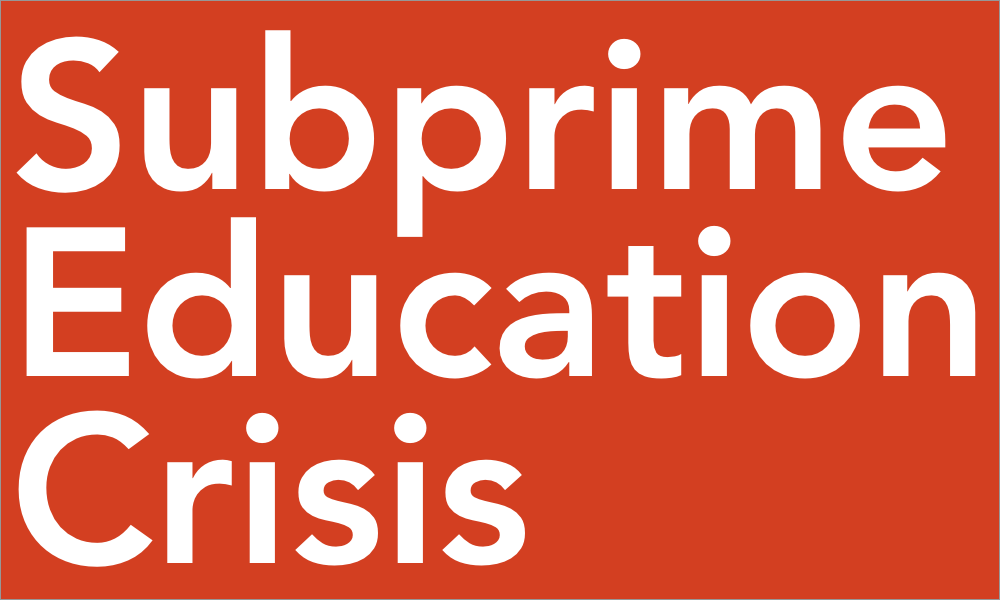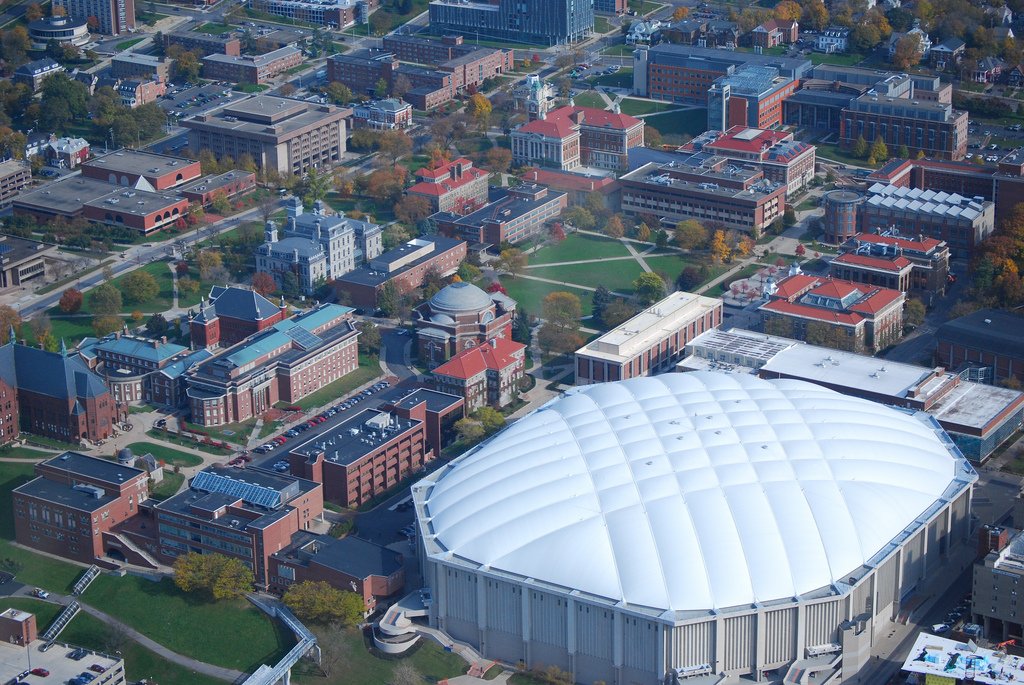
I’m worried that our huge educational institutions will fail in the coming years. Maybe not as spectacularly as the banks during the subprime mortgage crisis in 2008, but slowly and surely as a new and more sustainable education model emerges and changes how we value higher education.
There might always be a niche for this type of institution, but I find it hard to believe that nothing will change over the next few decades. It’s definitely possible to learn without huge sprawling campuses and expensive professors. Students in the United States are leaving school with record high debt, and are oftentimes still unable to find a job in their desired industry.
I’d like to think through what might be going wrong, and some possible roads forward. This post is basically just me daydreaming about the future — I have no idea if any of this will come true, and there’s definitely a chance I’m wrong about the current higher education system. I’d love to hear your opinion in the comments!
Follow the Subprime Loans
When I wrote my first notes for this post, I thought the label subprime education crisis was a smart concept. After doing some more research I, of course, realized that I’m late to the party. There is an hour long episode of Frontline called A Subprime Education that takes a look at the unethical practices of some for-profit colleges, and this article in The Huffington Post that looks at some of the broader statistics. Here’s a quote from the Huff Post article:
For borrowers whose bills first came due in 2012, 57 percent of them owed more on their federal student loans by 2014, the study shows. By contrast, less than 40 percent of borrowers who entered repayment from 1996 to 2006 experienced an increase in their balances two years after leaving school.
The paper doesn’t explain why borrowers’ loan balances are growing at a time when they’re supposed to be decreasing. Possible reasons include the increased use of federal plans that allow borrowers to make payments based on their earnings, the heavy use of forbearance plans in which borrowers’ required payments are delayed, and rising defaults as students increasingly flocked to questionable for-profit colleges in the wake of the Great Recession but were unable to secure jobs that would enable them to repay their loans.
Whatever it is that’s causing the problems in the loan market, I would argue that it’s way too easy to get a student loan right now. Loans are handed out as if it’s a guarantee that a degree will lead to a high (enough) paying job. Maybe the solution isn’t to make it easier for people to get a loan. Maybe the solution is a complete overhaul of higher education that makes it possible to gain the skills needed for a job in a way that costs less and requires less time to complete.
Coding Bootcamps

I imagine the future will require all of us to be capable of pivoting more quickly in our professional lives. A change in automation might instantly leave thousands of people out of work. How can we give someone a valuable skill in a short amount of time for a small investment? This is better for everyone involved — the worker gets a new valuable skill to nurture and help them earn, and we as a society benefit from an additional skilled worker.
I think a great example of where things might go is coding bootcamps — they’re basically modern trade schools. With this type of program, you can learn the skills necessary to become a junior web developer in a few months, for significantly less money than a four year degree.
I’ll put a disclaimer in here that these programs are still new, and some are starting to fail as they figure out the best business model. Personally, I don’t really think this is a terrible sign — it’s going to take some time to figure out what works best. I still haven’t completed the program I’m enrolled in and found a job, so keep that in mind as well. I can’t fully stand behind the concept until it has resulted in me having a full-time job as a developer.
Part of the reason I decided to enroll in Thinkful is because I’m excited about the future of online schools. Web development definitely lends itself to this type of program, but I can’t wait to see how the same model is applied to other fields. I learn so much in the three hours a week I spend with my mentor.
Here’s an interesting quote from this article related to breaking down a college degree into one on one sessions with a professor:
The average tenure hopeful adjunct makes $40 an hour. If you were to employ her as a private tutor at the cost of $60 an hour, and had four hours with her a week, and did that for 14 weeks (that's the length of an average college course folks) that is about $3,400.
Were you to employ three such professor-tutors, that would be about $10,200, or a bit over $20,000 a year. In four years you would have racked up $80,000 in costs. But this is still $30,000 less than the total for the 'cost conscious' universities. It is a quarter of what you would pay for Trinity.
Remember: this $80,000 is for private tutoring, where individual attention would give you far and away a better and more thorough education than the 300-kids-in-a-lecture-hall style of classes that dominate undergraduate education today.
But it can get even cheaper. Let's say you take the general principle of group classes from the university. Say you can find four other people to take all of these other classes with you. Just four. Well that equals out to $680 per class, or $16,000 a person for four years of classes.
To be fair, add in $1,000-$2,000 for textbooks and a subscription to JSTOR, for a total of about 17,000 to 18,000 for four years.
Modern universities are insane.
Save the Universities

If students have cheaper proven alternatives, they’ll start to question the need to spend so much on a university degree. As less people are willing to spend the money, universities will have no choice but to lower prices or change their model to something that is less costly. Or, unfortunately, they can pursue aggressive and unethical marketing practices to recruit new students.
I don’t want universities to fail. There’s nothing quite like being surrounded by thousands of other people who are bettering themselves. They’re also centers for innovation and progress in society, which might actually be where the divide starts to form as new educational models arise. Universities can remain centers for research, community, and the pursuit of knowledge, and trade schools might take over as the future of higher education for the masses.
What do you think the next few decades of education will bring? Will schools remain largely unchanged? I’m excited to see what happens!

